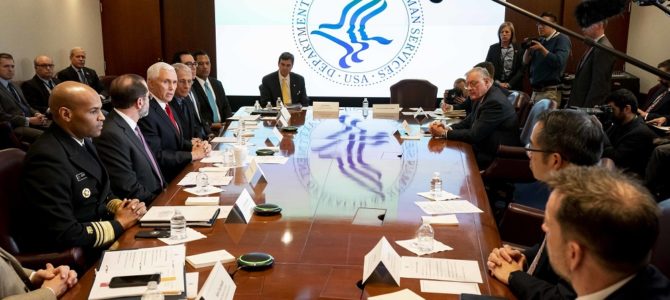
When the coronavirus first hit the news, my son came down with a head cold. He felt a little conspicuous: “I feel like I should tell people the last time I went to China was 20 years ago.” We both laughed.
But government bureaucrats aren’t laughing. Responding to the coronavirus health crisis, the U.S. Centers for Disease Control issued guidance… about stigma. According to the CDC, “Stigma hurts everyone by creating fear or anger toward other people.”
In this case, the CDC warns that potential stigma victims include Asians, travelers, and health-care workers. The CDC urges us to help stop stigma by speaking out against “negative statements on social media about groups of people,” and making sure shared images “do not reinforce stereotypes.”
Likewise, the World Health Organization (WHO) has expressed concern about “public stigmatization among specific populations, and the rise of harmful stereotypes,” including people “being labelled, stereotyped, separated, and/or experience [sic] loss of status and discrimination because of a potential negative affiliation with the disease.”
Without citing research, the WHO speculates that stigma “could potentially contribute to more severe health problems.” We are each urged to “do our part” by “engaging social influencers… to amplify messages that reduce stigma,” “show diverse communities that are being affected,” and “helping combat rumour and misinformation that could lead to stigmatization.”
WHO also gives us helpful (?) dos and don’ts when talking about coronavirus:
- Don’t use “Chinese virus,” use “COVID-19.”
- Don’t use “suspected cases,” use “people who are presumptive for COVID-19.”
- Don’t refer to people who “spread the virus,” because that assigns blame. Instead, talk about people who “acquire” or “contract” COVID-19.
- Don’t use hyperbolic language like “plague,” or “apocalypse.”
WHO are these people, and why are they telling me what I can and cannot say?
As an employment lawyer, I have been fielding questions about how companies can reduce risk of disease transmission in the workplace. Instead of focusing on worker health, government regulations force me to remind my clients not to discriminate based on legally protected characteristics, including disability.
This is no simple task, as the 5,700-word guidance from the Equal Opportunity Employment Commission (EEOC) reminds us. Many relevant questions, including whether an employee may have a health condition that predisposes him or her to infection, are illegal unless asked very carefully under very specific conditions. If an employer trips up, they must worry about complaints to the EEOC, in addition to the coronavirus. (I’ll take the virus, thank you.)
Chasing the phantom of “coronavirus stigma” is nothing more than tiresome virtue-signaling. It’s also a wasteful diversion of our tax dollars. While our bureaucratic overlords sit in their offices preparing speech codes, the sanitation crisis in San Francisco and other American cities continues to grow. God forbid COVID-19 takes residence in a West Coast homeless encampment.
Apparently, our government doesn’t trust us to talk about the coronavirus, much less make our own decisions regarding how to protect ourselves and our companies. They think we are hopelessly bigoted and stupid. Talk about stigma! These bureaucratic power grabs, in the guise of protecting us from a health crisis, should be highly offensive to a free people.
For those who love liberty, here are some alternate dos and don’ts:
- Take responsibility for family hygiene. Remind your kids to wash their hands, and to refrain from touching their faces.
- Weigh the risks of crowds and travel. Stay home when it is best for you and your family.
- Talk to your family, neighbors, and faith communities about basic emergency preparedness. Who is most vulnerable, and how can you help them?
- Keep making jokes about the coronavirus, even if they aren’t politically correct. Laughter helps reduce anxiety.
- In the event of quarantine, make sure to stock up on fantasy novels! (“Power Trip” is my favorite).
When they actually focus on health, government health organizations can provide important information and support to fight disease. At the same time, we cannot trust these organizations unconditionally. We must continue to take personal responsibility, both for our health, and for our precious freedoms.









